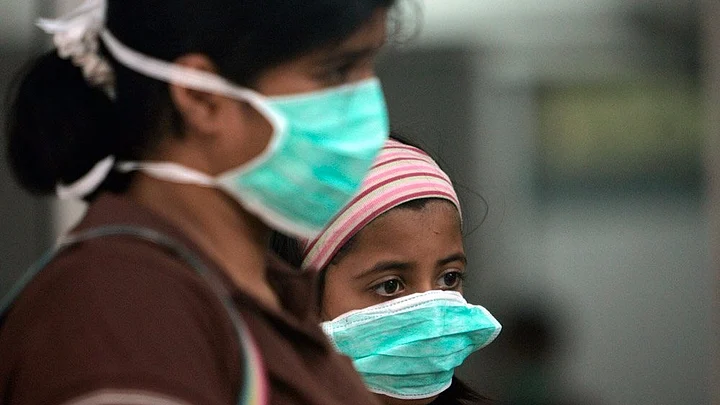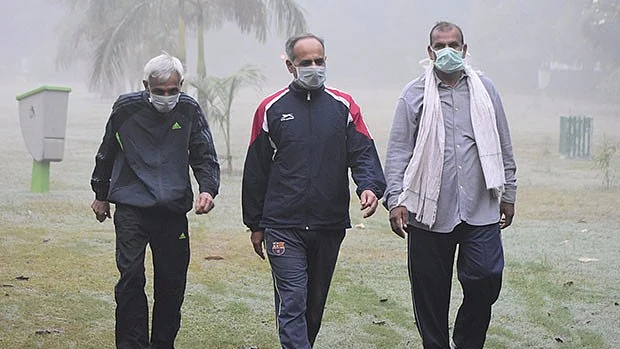The Supreme Court on Thursday, 25 January asked the Centre to look into the problem of air pollution on a nationwide basis and not confine it to Delhi-NCR only, saying reports suggested that cities like Raipur and Patna were more polluted.
The apex court asked the Ministry of Environment, Forest and Climate Change (MoEF) what it proposed to do on the air pollution issue for the rest of the country.
"The newspaper reports say one of the cities, Raipur, is more polluted than Delhi. Patna is also there. Why should special treatment be given to Delhi. What do you propose to do for rest of the country," a bench of Justices Madan B Lokur and Deepak Gupta asked the ministry.
Additional Solicitor General (ASG) ANS Nadkarni, representing MoEF, told the bench that appropriate steps were being taken in this regard and a final decision would be "taken very soon".
“In our order dated 13 December 2017, we had also observed that it might be appropriate if the Ministry of Environment, Forest and Climate Change looks into the matter of air pollution on a nationwide basis, since it is not a problem confined only to the NCR but a problem concerning the entire country,” the bench noted in its order.
The bench also raised the issue of stubble burning, which is one of the cause of air pollution in Delhi-national capital region (NCR), and told the ministry that a "cohesive action" was needed to deal with it.
"For stubble burning, there is now another task force. They have given some recommendations. It should not be like this that somebody is saying something and somebody else says something. There has to be a cohesive action," the court said.
Nadkarni told the bench that there would be cohesive action on these issues and the ministry would ensure it.
On 23 November 2017, a high level task force for management of air pollution in Delhi and NCR, comprising experts and senior officials of various departments, was constituted by the Cabinet Secretariat.
During the hearing, the ministry also referred to a comprehensive action plan for air pollution control, which is aimed at meeting the ambient air quality in Delhi and NCR including states of Haryana, Rajasthan and Uttar Pradesh.
The ASG told the bench that to ensure compliance with the orders passed by the top court and effective implementation of actions prescribed in the action plan, the Central Pollution Control Board (CPCB) has been requested to issue appropriate direction under the Environment Protection Act, 1986.
He said directions would be issued to all stakeholders in the Centre, Delhi and NCR states of Uttar Pradesh, Haryana and Rajasthan for undertaking all necessary measures for meeting the timelines as prescribed in the action plan.
He said these timelines have been arrived at in a meeting held on 28 December last year which was also attended by the court mandated Environment Pollution Control Authority (EPCA).
The ASG said certain timelines mentioned in the EPCA have been agreed upon in the meeting while some issues would be finalised after further deliberation. He said the CPCB would issue appropriate directions during the day itself.
To this, the bench asked whether these timelines would be adhered to.
Nadkarni assured the court that the CPCB would issue directions which would be implemented.
An advocate, assisting the court as an amicus curiae in the matter, welcomed the submissions of the ASG and said that the authorities were now taking appropriate steps.
The bench has fixed the matter for hearing on 5 February.
Regarding the issue whether on-board diagnostic (OBD) scanners could be made compulsory for vehicle pollution test centres in grade A cities like Delhi, the bench said it would consider this aspect on the next date of hearing.
OBD is an automotive term referring to a vehicle's self- diagnostic and reporting capability. OBD II is designed to inform a car owner about any malfunction, including problems with brake or with the emission control system.
The bench was also informed that EPCA has received a report from Pune-based Automotive Research Association of India on pollution under control (PUC) certificate programme.
The ASG said that he would look into the report after which the bench said this aspect would also be dealt with on 5 February.
The court was hearing a PIL filed in 1985 by environmentalist M C Mehta who had raised the issue of air pollution in the Delhi-NCR
(We Indians have much to talk about these days. But what would you tell India if you had the chance? Pick up the phone and write or record your Letter To India. Don’t be silent, tell her how you feel. Mail us your letter at lettertoindia@thequint.com. We’ll make sure India gets your message.)
(At The Quint, we question everything. Play an active role in shaping our journalism by becoming a member today.)

.jpg?rect=0%2C0%2C2000%2C1125&auto=format%2Ccompress&fmt=webp&width=720)


